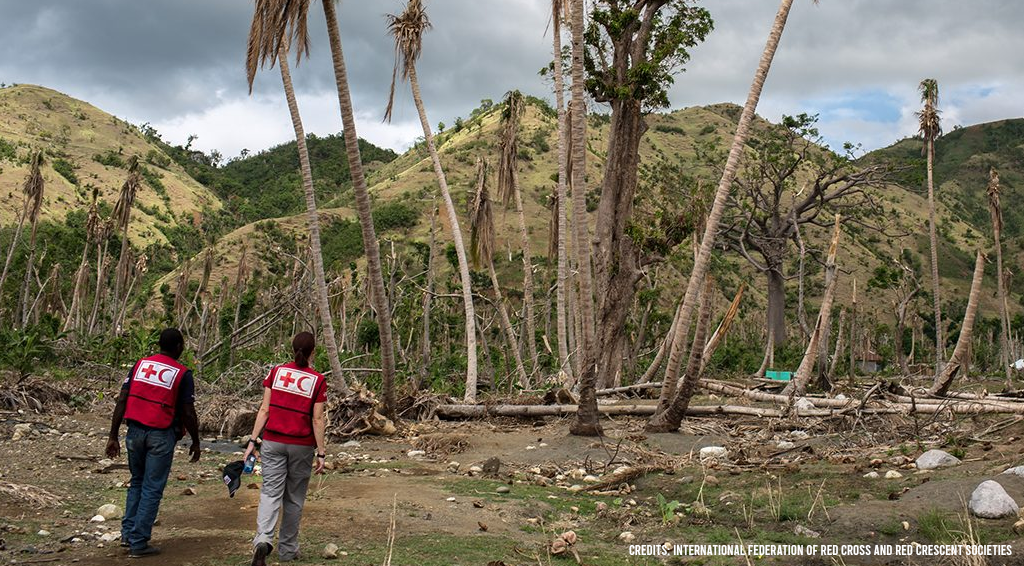Red Cross braces for this hurricane season
The International Federation of Red Cross and Red Crescent Societies (IFRC) is currently mobilizing and ramping up the efforts of hundreds of Red Cross teams across the Americas to prepare for another hurricane season during the COVID-19 pandemic.
Experts predict 13 to 20 named storms forming in the Atlantic Ocean only, six to 10 of those developing into hurricanes, and three to five possibly becoming major hurricanes of Category 3 or higher. These storms could bring further devastation to a region that is still heavily affected by last year’s storms and hurricanes and the COVID-19 pandemic.
During the next six months, deadly rains, landslides and floods could further affect communities already grappling with the pandemic, where vaccines are not yet widely available, and where livelihoods have been destroyed.
Jagan Chapagain, IFRC Secretary-General, said that in Central America and Colombia, thousands of families are still recovering from damage caused by hurricanes Eta and Iota, which affected more than 7.5 million people just six months ago. Recovery has been hindered by the pandemic, which has wiped people’s economic resources, strained health systems and caused challenges to the response.
“The pandemic adds another layer of complexity. We are now, once again, facing an extremely challenging scenario, with overlapping crises increasing the vulnerabilities of women, children, migrants and other groups. We are supporting regional efforts to prepare for this hurricane season, including strengthening and equitable response to the COVID-19 pandemic, ensuring that no one is left behind”, added Chapagain
To mitigate the logistical challenges caused by COVID-19 restrictions, the IFRC has prepositioned humanitarian goods in Panama, Guatemala, Honduras and across the Caribbean to provide immediate response to the humanitarian needs of up to 60,00 people. In parallel, Red Cross teams share early warning messages and urge people to have food, water and other basic necessities at hand, as during the pandemic it might take longer for help to arrive.
The IFRC is paying particular attention to the English and Dutch-speaking Caribbean, where several countries have been affected by La Soufrière’s volcanic eruption and where COVID-19 cases and deaths are currently reaching a record high and the socio-economic impact of the pandemic is particularly severe.
Meanwhile, Roger Alonso, IFRC Head of Disasters, Crises and Climate Unit, urge government and even the public to invest in disaster preparedness.
“These weather events are cyclical and becoming more frequent and intense. In many cases, we can predict them, so we urge government and donors across the region to invest in early warning systems, disaster preparedness efforts and climate change adaptation initiatives that engage vulnerable communities and put them at the heart of the humanitarian response. The Red Cross experience shows that being better prepared before a disaster hits can save lives”.



